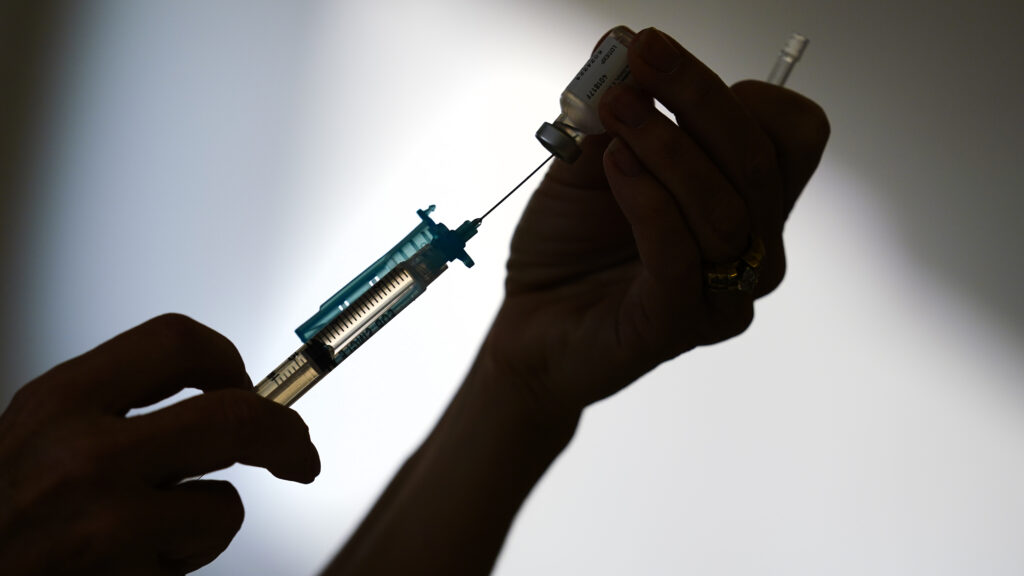The recent decision by the U.S. Food and Drug Administration (FDA) to modify the guidelines for Covid-19 vaccine approvals is raising significant public health discussions. This change is set to restrict future vaccine access primarily to older adults, specifically those aged 65 and over, and individuals with certain underlying health conditions that increase their risk of severe Covid-19 infection. The shift in criteria sets the stage for a new approach in how the country responds to the ongoing pandemic.
The New Framework: Who’s Eligible?
Under the FDA’s new framework, as articulated by Dr. Vinay Prasad and FDA Commissioner Dr. Marty Makary, vaccine approvals will now hinge significantly on the age and health status of potential recipients. The revisions indicate that the updated vaccines may only be available this fall for adults aged 65 as well as for individuals with specific underlying medical conditions that heighten their risk of severe outcomes from the virus. This decision aligns the U.S. more closely with vaccine recommendations from other countries, including the UK and Canada.
According to the Centers for Disease Control and Prevention (CDC), nearly 75% of Americans aged 6 months and older have at least one underlying medical condition, which opens the door for substantial numbers of Americans to access vaccination under these new rules. However, it raises an essential question: what about healthy adults and children?
Implications for Healthy Individuals
One of the more contentious aspects of the FDA’s new guidelines is the decision to limit vaccine access for those under the age of 65 without underlying conditions. As stated by Prasad and Makary in an editorial in the New England Journal of Medicine, there is insufficient evidence to support the clinical benefits of repeated Covid-19 vaccinations for healthy young adults and children. They assert that more rigorous, placebo-controlled trials are essential to confirm efficacy and safety for these demographics.
Many health experts express concern over this shift. Dr. Paul Offit, a prominent figure in the vaccine community, believes that the FDA’s stance underestimates the value of existing data. He argues that significant evidence already supports the safety and efficacy of vaccines for healthy populations. Moreover, restricting vaccine access could potentially increase the risk of variant emergence and public health inequities.
“This policy change will increase likelihood of variant emergence and worsen health inequities. Broad vaccination protects more people, reduces disruptions, and is essential for community-wide immunity and pandemic control.” – Dr. Jodie Guest
The Process Behind the Guidelines
The FDA’s revised approach reflects a compromise designed to ensure that millions of Americans, particularly those more vulnerable to severe Covid-19, still receive necessary vaccinations while simultaneously demanding further research for low-risk groups. This dual focus aims to restore public trust in vaccines, which has waned in recent years due to inconsistent recommendations and mandates.
Data reports reveal that vaccination rates have plummeted; less than 25% of Americans have sought a Covid-19 vaccination in the past two respiratory seasons. Some experts believe that fears surrounding the virus have subsided, contributing to what is referred to as “booster fatigue” among the population.
Longer-Term Considerations
While the FDA’s new policy may help increase vaccinations among at-risk groups, it notably overlooks long-term implications of Covid-19, including risks pertaining to long Covid, which has been shown to be reduced by vaccination. Dr. Peter Hotez points out that these considerations are critical in assessing the function of vaccines beyond immediate protective effects.
Critics and Supporters Weigh In
The response to the FDA’s revisions has been mixed, with supporters advocating for a more targeted approach to vaccination while critics warn of dangerous public health repercussions. Dr. Noel Brewer, an academic familiar with vaccine policies, supports the FDA’s decision, suggesting it aligns with international standards of public health, while others such as Dr. Offit express concerns over possible restrictive consequences for healthy populations.
The Future of Covid-19 Vaccination
As discussions continue, key stakeholders, including vaccine manufacturers like Pfizer, Moderna, and Novavax, are on notice regarding the FDA’s intensified scrutiny concerning vaccine efficacy data among different populations. Future vaccine compositions will be informed by upcoming clinical trials, with agencies poised to approve them based on evidence linking them directly to reducing symptomatic illnesses in broader groups.
“The proposed policy moves the US in line with other countries. This global view of public health is a welcome development.” – Dr. Noel Brewer
Conclusion
The changes introduced by the FDA regarding Covid-19 vaccinations reflect a significant evolution in public health strategy. While the intent is to align with evidence and protect those most vulnerable, the potential limitations on vaccine access for healthy adults and children could lead to broader implications for community immunity and public health management. As stakeholders navigate this terrain, the focus remains on presenting robust data that can guide public health decisions while managing ongoing pandemic challenges.
The implications of these changes will continue to unfold as the FDA and vaccine manufacturers respond to evolving Covid-19 dynamics.

